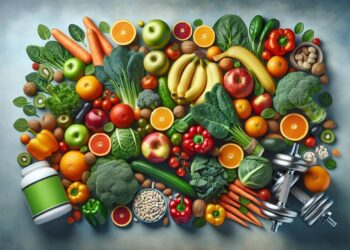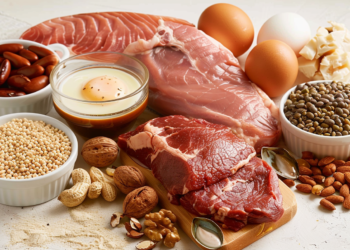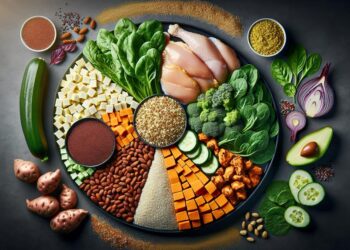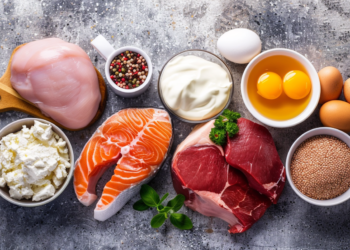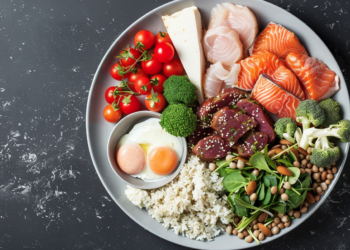Imagine your heart as a well-oiled machine, tirelessly working day in and day out to keep you alive. But what happens when that machine starts to sputter and struggle? High blood pressure, or hypertension, can put a strain on your heart, making it harder for it to perform its vital functions. That's where the DASH diet comes in. This renowned eating plan has been proven to naturally lower blood pressure and support heart health. But how does it work? And how can you implement it into your own life? In this discussion, we will explore the science behind the DASH diet, uncover its key guidelines, and provide you with practical meal planning tips and recipes that will leave your taste buds satisfied while supporting your heart. So, let's dive into the world of DASH and discover how you can take control of your heart health.
Key Takeaways
- The DASH diet is a balanced eating plan that emphasizes consumption of fruits, vegetables, whole grains, lean proteins, and low-fat dairy to lower blood pressure and improve overall health.
- The DASH diet promotes weight loss through calorie deficit and by focusing on nutrient-dense foods and reducing calorie-dense options.
- The DASH diet has been shown to be effective for weight loss and more effective than a low-fat diet.
- Chronic stress, genetics, diet, and lifestyle choices can contribute to high blood pressure, but the DASH diet's nutrient-dense foods may help reduce inflammation caused by stress and lower blood pressure levels.
Understanding the DASH Diet
To better understand the DASH diet, it is important to familiarize yourself with its core principles and guidelines. The DASH diet, or Dietary Approaches to Stop Hypertension, is a balanced eating plan that aims to lower blood pressure and improve overall health. It emphasizes the consumption of fruits, vegetables, whole grains, lean proteins, and low-fat dairy products while limiting the intake of sodium, saturated fats, and added sugars.
One of the main benefits of the DASH diet is its ability to promote weight loss. By focusing on nutrient-dense foods and reducing calorie-dense options, the DASH diet can help you achieve a calorie deficit, which is essential for weight loss. Additionally, the DASH diet encourages the consumption of high-fiber foods that promote satiety and reduce cravings, making it easier to maintain a healthy weight.
Numerous studies have shown that the DASH diet is effective for weight loss. In a study published in the New England Journal of Medicine, researchers found that participants who followed the DASH diet for eight weeks experienced significant weight loss compared to those following a typical American diet. Another study published in the Journal of the Academy of Nutrition and Dietetics found that the DASH diet was more effective for weight loss than a low-fat diet.
The Science Behind Lowering Blood Pressure
After understanding the core principles and guidelines of the DASH diet, it is important to explore the scientific basis behind its effectiveness in lowering blood pressure. Hypertension, or high blood pressure, is a common condition that affects millions of people worldwide. It is often caused by a combination of factors, including genetics, diet, and lifestyle choices. The DASH diet addresses these factors by promoting a balanced eating plan that is low in sodium and rich in fruits, vegetables, whole grains, lean proteins, and low-fat dairy products.
The mechanisms by which the DASH diet lowers blood pressure are still being researched, but several theories have been proposed. One theory suggests that the diet's high potassium content helps to relax blood vessel walls, thus reducing blood pressure. Additionally, the DASH diet's emphasis on fruits and vegetables, which are rich in antioxidants and other beneficial compounds, may also contribute to its blood pressure-lowering effects.
Furthermore, it is important to consider the effects of stress on blood pressure. Chronic stress can lead to increased blood pressure levels, putting strain on the cardiovascular system. The DASH diet's focus on nutrient-dense foods and its potential to reduce inflammation may help to mitigate the effects of stress on blood pressure.
To further understand the science behind the DASH diet's effectiveness in lowering blood pressure, let's take a look at the following table:
| Mechanisms of Hypertension | Effects of Stress on Blood Pressure |
|---|---|
| Genetic factors | Increased sympathetic activity |
| High sodium intake | Activation of the renin-angiotensin-aldosterone system |
| Obesity | Enhanced vascular reactivity |
| Lack of physical activity | Impaired nitric oxide production |
This table highlights some of the key factors involved in the development of hypertension and the effects of stress on blood pressure. By addressing these factors through dietary modifications, such as those recommended in the DASH diet, individuals can potentially lower their blood pressure levels and improve their overall heart health.
Implementing the DASH Diet: Key Guidelines
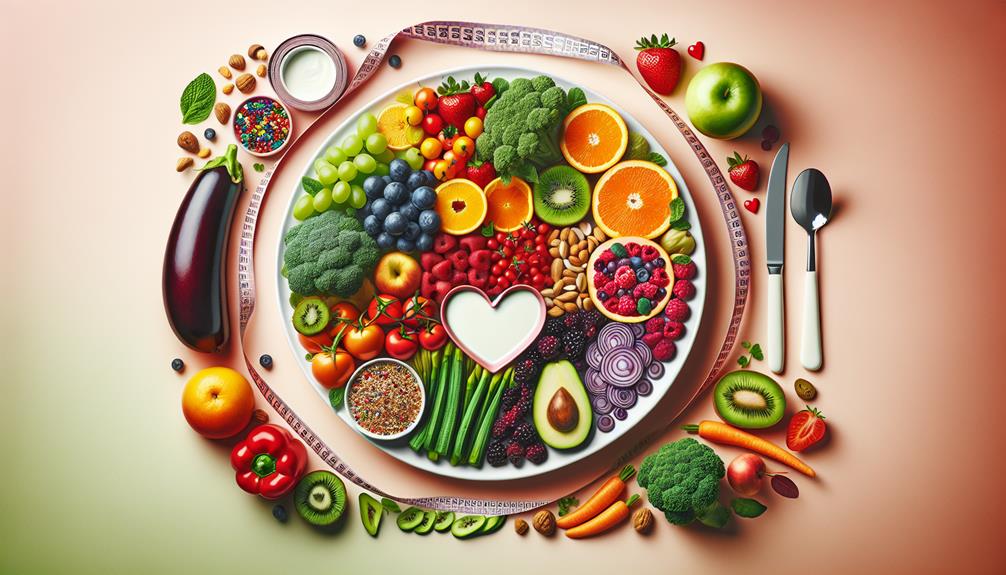
To effectively implement the DASH diet and achieve heart-healthy benefits, it is important to follow key guidelines designed to promote balanced eating and reduce sodium intake. By adhering to these guidelines, you can improve your overall health and lower your blood pressure naturally. Here are some essential tips to help you incorporate the DASH diet into your lifestyle:
- Plan your meals: Take the time to plan your meals in advance. This will help you ensure that you have nutritious options readily available and prevent you from making impulsive and unhealthy food choices.
- Focus on whole foods: Emphasize whole foods such as fruits, vegetables, whole grains, lean proteins, and low-fat dairy products. These nutrient-rich foods provide essential vitamins, minerals, and fiber to support your heart health.
- Engage in meal preparation: Get involved in the meal preparation process. By actively participating in cooking and preparing your meals, you can gain a deeper understanding of the ingredients used and make healthier choices.
- Consider dietary restrictions: If you have specific dietary restrictions, such as being vegetarian or having food allergies, ensure that you modify your meals accordingly. Consult with a registered dietitian to help you create a DASH diet plan that suits your individual needs.
DASH Diet Meal Planning and Recipes
To effectively plan your DASH diet meals and incorporate heart-healthy recipes, follow these guidelines for balanced eating and reduced sodium intake. The DASH diet emphasizes consuming fruits, vegetables, whole grains, lean proteins, and low-fat dairy products while limiting sodium, saturated fats, and added sugars.
Creating a grocery list that aligns with the DASH diet can help you stay on track and make healthier choices. Stock up on fresh produce, such as spinach, carrots, and berries, as well as whole grains like brown rice and quinoa. Include lean proteins like skinless chicken breast, fish, and tofu. Opt for low-fat dairy products like skim milk and Greek yogurt. Additionally, choose healthy fats like avocados, nuts, and olive oil.
To give you an idea of how to plan your DASH diet meals, here is a sample menu for a day:
| Breakfast | Lunch |
|---|---|
| Whole-wheat toast | Turkey and vegetable |
| with avocado spread | wrap with whole-grain |
| Greek yogurt with | tortilla |
| berries | |
| Snack | Dinner |
| Carrot sticks with | Grilled salmon with |
| hummus | brown rice and |
| steamed broccoli |
Lifestyle Tips to Support Heart Health

Incorporating simple lifestyle changes can greatly support your heart health and reduce the risk of cardiovascular diseases. Here are some tips to help you maintain a healthy heart:
- Exercise regularly: Engaging in physical activity is crucial for heart health. Aim for at least 150 minutes of moderate-intensity aerobic exercise or 75 minutes of vigorous exercise per week. Activities like brisk walking, cycling, or swimming can be beneficial.
- Manage stress effectively: Chronic stress can negatively impact your heart health. Practice stress management techniques such as deep breathing exercises, meditation, or yoga. These activities can help lower your stress levels and promote overall well-being.
- Get enough sleep: Lack of sleep can increase the risk of heart disease. Aim for 7-9 hours of quality sleep each night. Establish a regular sleep routine and create a relaxing environment in your bedroom to promote better sleep.
- Prioritize a healthy diet: Alongside the DASH diet, focus on consuming nutrient-rich foods like fruits, vegetables, whole grains, lean proteins, and healthy fats. Limit your intake of processed foods, saturated fats, and added sugars.
Frequently Asked Questions
Are There Any Potential Side Effects or Risks Associated With Following the DASH Diet?
You may experience potential side effects or risks when following the DASH diet. It's important to consult with your healthcare provider to ensure it's safe for you and to address any concerns.
Can the DASH Diet Be Effective for Individuals With Pre-Existing Medical Conditions?
The DASH diet can be effective for individuals with pre-existing medical conditions. It has been shown to improve blood sugar control for diabetes and lower cholesterol levels, promoting overall heart health.
Is It Necessary to Count Calories or Track Macronutrients While Following the DASH Diet?
You don't have to count calories or track macronutrients while following the DASH diet. It focuses on whole, nutrient-dense foods that naturally support heart health and lower blood pressure.
Can the DASH Diet Be Followed by Vegetarians or Vegans?
Yes, the DASH diet can be followed by vegetarians or vegans. By focusing on plant-based protein sources like beans and tofu, and incorporating plenty of fruits, vegetables, and whole grains, you can meet your nutritional needs and lower your blood pressure naturally.
Are There Any Specific Supplements or Medications Recommended to Support the DASH Diet and Lower Blood Pressure Naturally?
To support the DASH diet and lower blood pressure naturally, there are specific supplements and medications recommended. These can help optimize your heart health and blood pressure levels.
Conclusion
So there you have it, folks! The DASH diet is a powerful tool in the battle against high blood pressure. With its focus on fruits, vegetables, whole grains, and lean proteins, it's like a heart-healthy superhero. Say goodbye to those salty chips and hello to a healthier lifestyle. By following the DASH diet, you can lower your blood pressure naturally and keep your heart happy. It's time to take control of your health and show high blood pressure who's boss!






